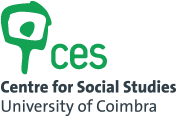Municipalities for Gender Equality
What was the problem?
In all the spheres of life, the inequalities between sexes, are at the genesis of the economic and social disparities which characterize unfair and unbalanced societies.
In this context, the local governance structures, such as the Municipalities, play an essential role in reducing those inequalities, given their proximity relation with the populations they serve.
However, many of these local structures are yet to be capacitated to promote another way of doing policies at the local level – one that integrates the gender equality perspective transversally to all political and public intervention areas and domains – the designated mainstreaming of gender equality.
What did we do?
The Local Gender Equality (LGE) project, funded by the Commission for Citizenship and Gender Equality (Comissão para a Cidadania e Igualdade de Género) under the European Economic Area Financial Mechanism (EEA Grants), established direct partnerships with five Portuguese municipalities, in order to develop a set of diagnosis methodologies and tools adapted to the partners which aimed at promoting gender equality at the local level.
The LGE ambitioned to inspire, motivate and facilitate change in these municipalities in the frame of gender equality, through drawing, testing, validating and disseminating innovating, adequate, useful, accessible and transferable tools and methodologies for supporting the autarchies and their local partners' network in their actions to transversally integrate the gender equality perspective in all the areas and domains of the local intervention, such as education, culture, economy, urban planning, mobility, environment, social action and governance.
The project's participative methodology inspired the conception of all the activities performed in the context of the LGE. It may therefore be stated that the resulting products anchor the seal of those who experience the territorial governance problematic aiming to attain superior levels of social cohesion and inclusion. The project's development was, effectively, based on participative methodologies; from the necessities' diagnose, obtained through several focus groups undertaken at the five city halls integrating the project's team, to the conception of the proposed solutions.
Therefore, 8 guides were produced for the integration of the gender perspective in areas such as: Education, Health and Social Action, Violence at Work, Mobility and Transports, Security and Violence Prevention in the Public Space, Culture, Sports, Youth and Leisure, Urban Planning and Environment, People management, Training and Employment. The Municipal Gender Equality Rate was also created, aimed at providing a locally adapted metric, as well as a Training Referential for gender equality in the municipal action and a toolkit for participative diagnosis.
What happened?
The municipalities involved in the project were Ferreira do Alentejo, Lagoa, Mangualde, Pombal and Póvoa do Lanhoso. The CH Academy also added to the project as a consultant entity. Internationally, the project promoted the experience interchange with Oslo University's Centre for Gender Research, in Norway.
The conception, experimentation and validation of the provided methodologies and instruments were made in co-construction not only with their final direct recipients (the municipalities' technical and leading staff), but also the indirect, namely representatives, technical and officer staff, relevant stakeholders in the various domains of municipal action.
All the persons who participated in the project's developed activities acquired new knowledges which allow them to improve their functional and leadership performance, not only in the Municipal Plans for Equality's (Planos Municipais para a Igualdade) conception and implementation, but also in every other area. In terms of the LGE impact, we may, in concrete, identify:
- It should be highlighted that two of the partner city councils – Póvoa do Lanhoso and, for the first time, Lagoa (Algarve) – were distinguished with the “Viver em Igualdade” (Living in Equality) Prize; it's a price attributed by the Commission for Citizenship and Gender Equality, aimed at identifying the city councils with the best practices in the frame of equality;
- in 2018, Ferreira do Alentejo, one of the project's partners autarchies which had no previous investment in integrating the gender perspective, and other four autarchies of Beja's District approved the Intermunicipal Plan for Equality (Intermunicipal Plan for Equality), with the objective of promoting local context public policies aimed at fighting the forms of discrimination in function of sex, sexual orientation, gender identity and sexual characteristics. As early as in 2016 the autarchic executive had approved, in council meeting, the Municipal Plan for Equality (Plano Municipal para a Igualdade).
- for the first time, Figueira da Foz's City Hall, whose technical and leading staff participated in every project training actions, applied for the “Viver em Igualdade” (Living In Equality) Prize, and was worthy of the honourable mention;
- the project's outputs inspired the new protocol model which sets the cooperation terms between the Commission for Citizenship and Gender Equality and the city councils in the frame of the local gender equality policies, namely in the conception and implementation of Municipal Plans for Equality; three members of the project's team participated in the elaboration of this protocol during the year of 2008.
-
the launching of a project of enlarged dissemination of LGE products – and the training of the autarchic staff to implement it – recurring to funding reimbursed by the European Social Fund, is under study by the government.

LGE
Local Gender Equality: Mainstreaming de Género nas Comunidades Locais
Virgínia Ferreira
June 5, 2015 to July 4, 2016
EEA Grants - National Agency for Citizenship and Gender Equality
(MFEEE (2009-2014))

